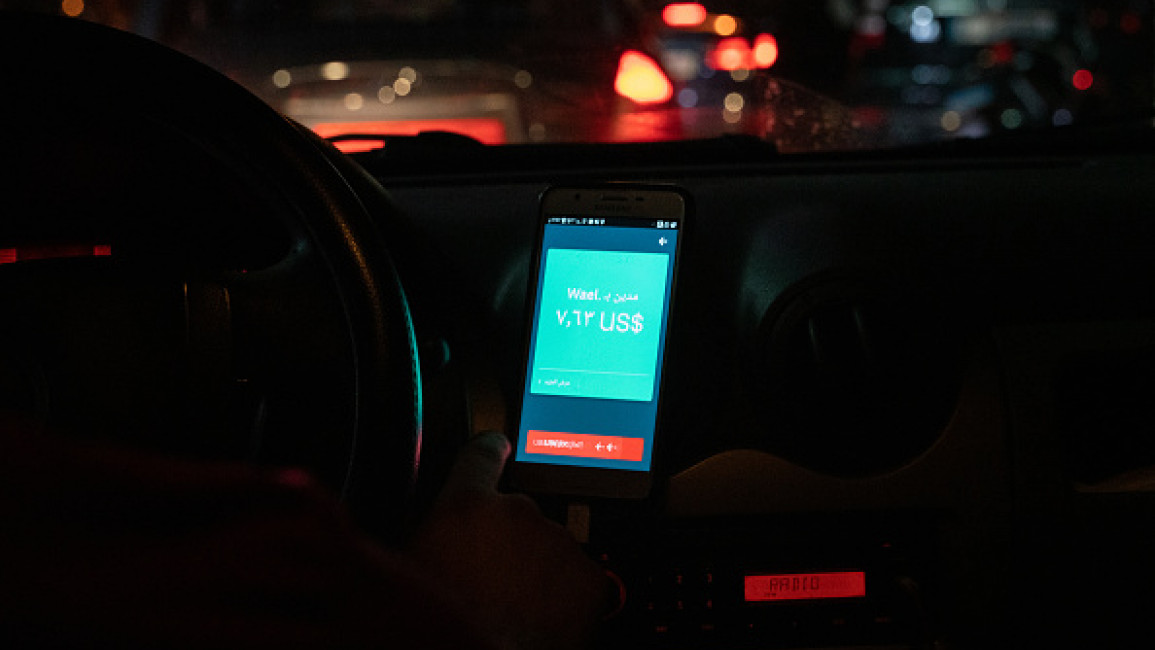Beirut Uber drivers launch three-day strike over low fares, rising prices
Uber drivers in Beirut launched a three-day strike on Monday, demanding the ride-sharing firm raise its fares to match rising costs in the Lebanese capital.
Described as a "stand of solidarity" in the announcement of the strike, drivers committed to collectively boycotting the service for six hours each day. A representative of Uber drivers in Beirut estimated more than "60 per cent" of drivers would be participating in the strike.
"Everything has gotten more expensive. But Uber's prices don't reflect this. We want the fares to increase," Darwish Taha, a driver chosen to represent Beirut Uber drivers, told The New Arab.
He added that drivers only take home 25 per cent of each ride, with the rest going to gas, maintenance and Uber itself.
Since 2019, Lebanon's financial crisis has resulted in a severe loss of purchasing power, with the Lebanese lira losing more than 90 per cent of its value against the US dollar. At the same time, Lebanon's dwindling coffers led the government to severely curtail its subsidies program.
The prices of basic goods have skyrocketed, with a 20-litre tank of gas becoming more than 500 per cent more expensive. The price of mobile data also increased five-fold in July – a calamity for drivers who rely on data for connecting with customers.
Local taxi offices have increased their fares accordingly, but Uber drivers, who rely on the app to price their rides, have not seen an equivalent increase. According to Taha, taxi drivers charge up to triple what Uber drivers receive for trips.
Taha said they have raised their concerns with Uber but have not received a substantive answer from the company. Uber closed its office in Lebanon during the COVID-19 pandemic, and drivers said they face difficulty communicating with the company.
The New Arab contacted Uber's press office with questions but did not receive a response by the time of publishing.
Mahar Safa, a father of four who has worked for Uber for the past five years, said that since Lebanon's crisis started, his wage has dramatically dropped.
"Before 2019, we used to go home with between $US 100-$US 150. Today, we'll go home with between $US 5-20," Safa told The New Arab.
"If we calculated our daily costs, we would just sit at home. We work so we can at least be doing something with our day," Safa said.
Uber is facing protests worldwide after a raft of leaked documents revealed a culture of impunity within the company and a lack of concern for workers' safety. The so-called "Uber Files" showed a company that, on at least one occasion, put its drivers in harm's way to increase its market share.
The company pioneered the gig economy, which encourages people to work more than one job and utilise their personal assets – such as cars and homes – as an additional source of income.
For years, the company claimed that drivers using its app were not actual employees but rather independent contractors. The company argued that it did not need to provide benefits such as insurance and cost-of-living salary adjustments.
Uber drivers have challenged this in court. In London, courts recognised Uber drivers as employees, forcing the company to provide benefits for its workers.



